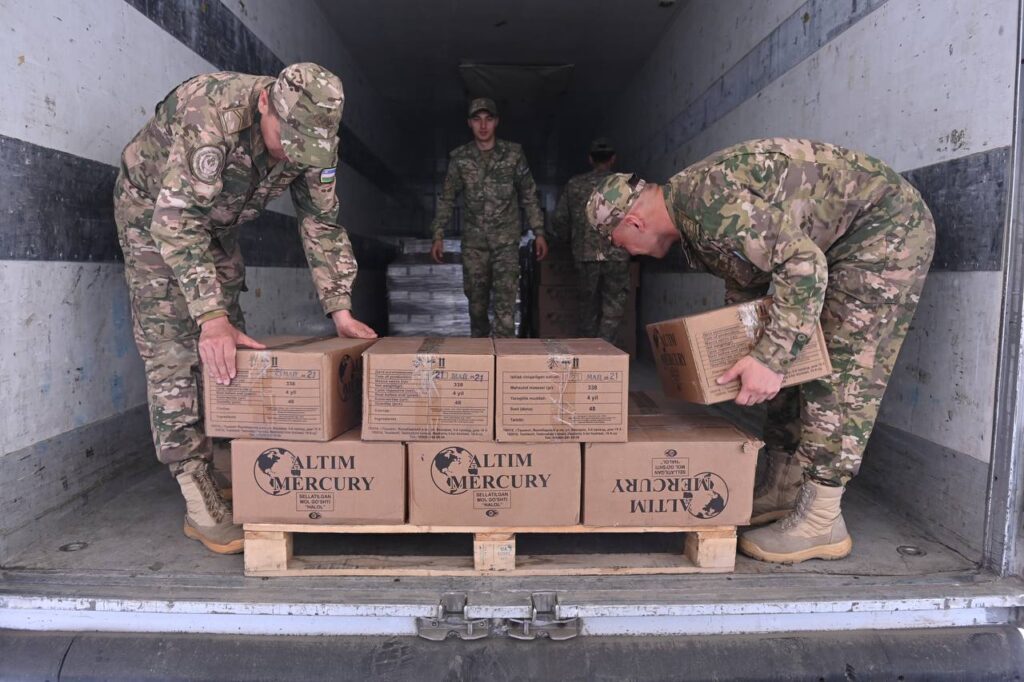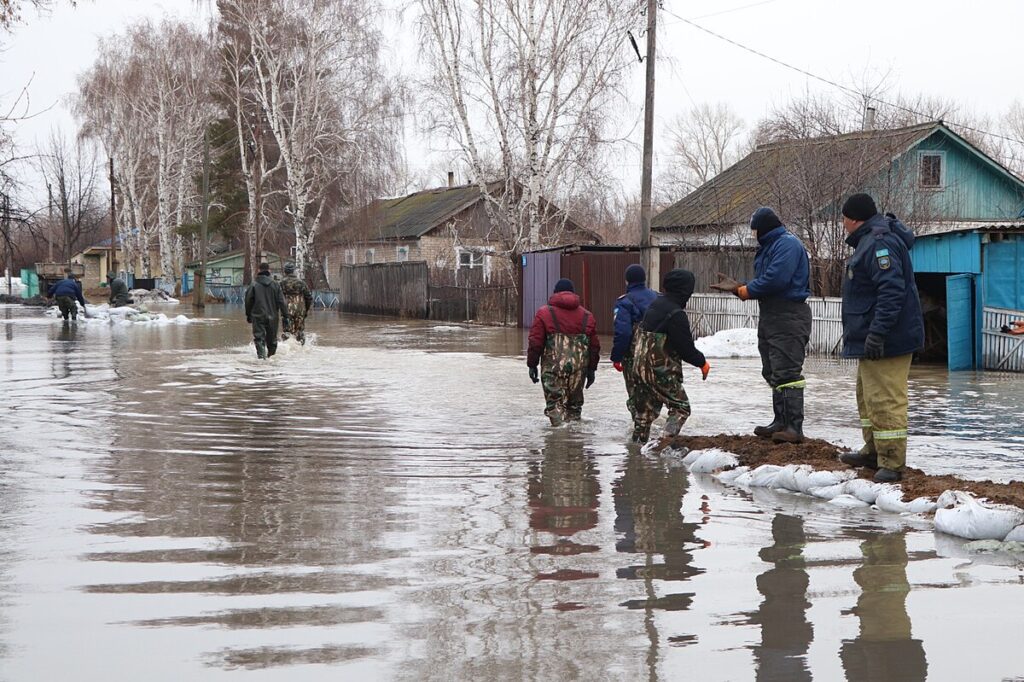Kazakhstan has been prone to flooding before, but the 2024 Kazakh floods have added a catastrophic page to the chronicles. Political analyst Marat Shibutov tells The Times of Central Asia that only extremely tough measures can motivate ministers and akims (local government executive) to actually work on flood prevention. The Floods Have Not Yet Peaked Areas and homes in many regions of Kazakhstan -- Atyrau, West Kazakhstan, Aktobe, Akmola, Kostanay, East Kazakhstan, North Kazakhstan and Pavlodar -- remain flooded. According to the Ministry of Emergency Situations, more than 113,000 people have been evacuated from the various disaster zones. The threat of another destructive wave of surface water still remains for major cities, even high-rise buildings are battling high in water in Atyrau, Petropavlovsk and Kostanay. Kazakh president Kassym-Jomart Tokayev has already visited the affected regions several times. According to local reports, people are now concerned not with punishing those responsible, but with paying fair compensation for lost housing, farms and livestock, and, most importantly, with creating an effective flood control system. In particular, residents of dacha (detached suburban) houses in Uralsk blocked the highway, demanding that the akim of the city include them in the list of those to be paid. If more floods occur it will be impossible to live in flood-prone areas. The only alternative is a radical revision of the requirements for residential zoning protective measures. Tokayev spoke about the responsibility for breached and unfinished dams and dikes, as well as the overlooked forecasts made by meteorologists about increased snowmelt and the threat of flooding not only from rivers, but also from the steppes in late March. For the lack of timely flood control measures, he announced a harsh reprimand to First Deputy Prime Minister Roman Sklyar and Minister of Water Resources and Irrigation Nurzhan Nurzhigitov. Local administrators weren't spared either, with harsh reprimands and warnings for incomplete official compliance to the akims of Aktobe, Kostanay and West Kazakhstan regions -- and a harsh reprimand to the akims of Atyrau, Akmola, Almaty, Pavlodar and Abay regions. According to official data from the Ministry of Emergency Situations, in 2024 to date seven billion tenge ($15.5 million) have been allocated just to local executive bodies for flood mitigation activities. In March 2024, 66 billion tenge ($147 million) was allocated to carry out work relating to combating emergency situations. From 2019 to 2023, the Emergency Situations Ministry's expenditures increased almost fourfold, to 264 billion tenge ($588 million). Over the past five years, over 762 billion tenge ($1.7 billion) has been allocated from the national budget. What exactly those funds were towards remains an open question -- possibly as part of ongoing criminal cases. Disasters of the Past It's not the first time that high water has caused irreparable damage in Kazakhstan. In Uralsk they still talk about a serious flood in 1942. In early May, the water level in the Urals reached 943 centimeters, and a 9-point storm raged on the river. Over 500 families were evacuated from...



